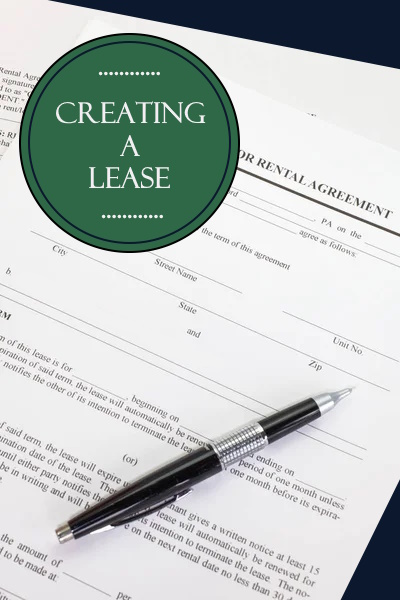Creating A Vendor Lease
Opening a vendor store can be a bag of mixed emotions. You want to make sure things go smoothly when it comes to starting your store. There are a lot of components that go into opening a store, especially a vendor store. One of the components that should be completed early on is the forming of your store’s lease between your store and your vendors.
There’s a lot that goes into creating a vendor lease and it has many details that need to be included in it to make sure you, your store, and your vendor are covered should a problem arise.

Let’s cover some of the key components that should be included to your vendor lease or agreement. This will be different for every store and you’ll want to customize your lease to fit your needs. This is not legal advice and should not be used as such.
1. Who is the lease between?
Be sure to include your business’s name and your vendor’s name to let anyone who reads the lease know who the lease is between.
Tip: Your business’s name can already be on the lease since you’ll be using the same form for each vendor most likely. When it comes to the vendor’s name, you can have a blank space and then add it on the lease as needed since it will change with each vendor.
2. The Date
When did you and your vendor go into this agreement? This info will be helpful if that vendor decides to leave or if you celebrate how long a vendor has been with you (would make a great social media post 🙂 )
3. Rental Terms
Include your rental terms. Here are some examples…
– The rate that the vendor will be paying
– When rent is due
– Late fees if rent is late
– If rent will or will not be deducted from Vendor’s monthly sales
– Any returned check fees (if you accept checks from vendors)
– Money that is owed at the time of signing the lease (first month, last month, security deposit, etc…
– Commission: if you collect a commission on vendor sales
4. Taxes
When it comes to the sales taxes, who will be submitting them to your state? Will you do it? Can the vendor? Each state is different so be sure to check on this beforehand so you make sure you’re doing it legally and properly.
If you have any other taxes that need collected or paid, spell it out for your vendors here too.
5. Sublease
Will you allow a vendor to sublease out their space to someone else if they no longer want it? Add the details if you’re going to allowing subleasing or not.
6. Liability/ Insurance
Having incidents certainly isn’t new, but legal remedies are being sought after more often and damage awards are going up so besides from your store having liability insurance and other insurances, it’s a good idea to have your vendors look into getting renter’s insurance as well. If you will require or recommend vendor’s to have insurance, be sure to add it to the lease too.
7. Emergencies
In case of an emergency like fire, flood or other casualty to the building or premises, what happens to the lease? What would your terms be if this were to happen? Also, if there happens to be another pandemic, have a plan in place for that too.
8. Merchandise
Cover you and your vendor and make sure the items they’ll be selling will comply with all local, state, and federal laws, codes, and ordinances. Also, what type of items are acceptable for the vendor to sell and not sell? For example, we don’t allow weapons, fireworks, counterfeit, alcohol, items with severe swear words, etc…
Here in Pennsylvania, all quilts, upholstered chairs, sofas, cushions, pillows, comforters, etc, may not be sold unless the Vendor possesses their own bedding license because each of those items, unless brand new, need to be spray with the appropriate spray via our state. So if your state does something similar, cover that in your lease too.
9. The Booth / Area
Cover what your expectations are for the vendor’s booth. Do you have wall requirements for your store? There should be no merchandise allowed in the walkways so remind them of that. Their items need to stay confined to their space.
10. Tagging Items
Are there specific things that a vendor needs to include on their tags when pricing and tagging their items? What happens if an item is missing a tag? What’s your protocol for this?
11. Discontinuation
How does the vendor terminate the lease? What’s the time frame that they need to give prior to leaving? How do you want the notice; a letter, email, in-person, phone call?
12. Getting Paid
What’s your pay procedure? Spell it out for them. How often will they get paid? When will they get paid?
13. Signatures
Have the vendor(s) sign the lease and you sign it as well.
14. Other
Here are some other things that I’ve seen other stores add to their leases.
-If you require vendors to work in your store, add that.
-Rent increases: If your building rent goes up or you have added expenses, will you do a rent increase to your vendors too?
-Discount policy: In this business you’ll find that many customers expect to negotiate a discount. What’s your policy on this?
-Return policy: most vendor stores do not offer returns on vendor items. If you’re planning on letting customers make returns, what’s the policy for that?